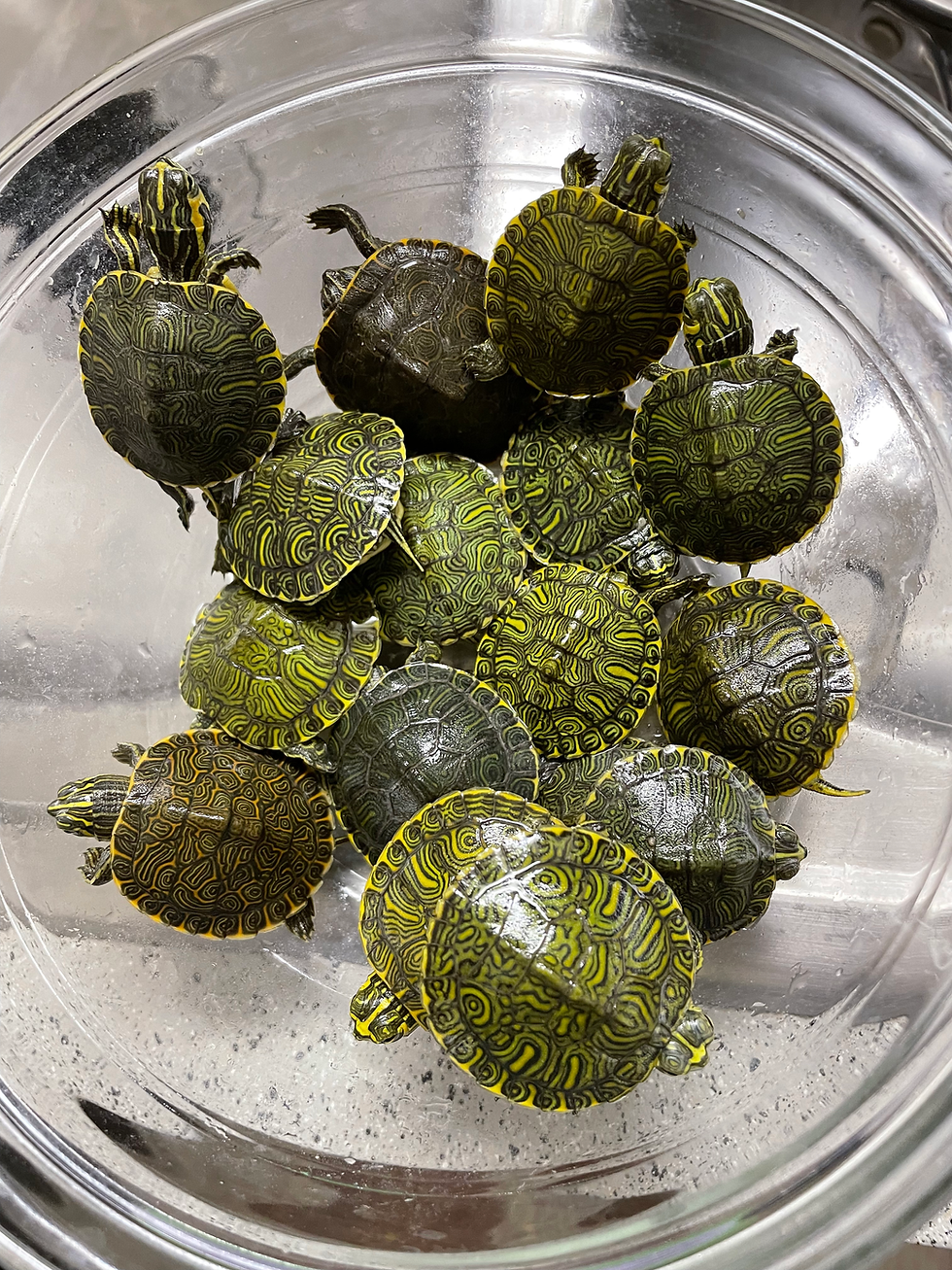Where We Are Right Now - Jan 2022
- aturtleforeverylog
- Jan 19, 2022
- 3 min read
Updated: Jan 24, 2022
Hi All, here is an update of where we are right now with our turtle habitat project!
To create a breeding pond we install wetland plants that provide appropriate amounts of food and cover. We then surround the pond with a modest fence for keeping turtles in and around the pond, and back that up with an electric fence to keep unwanted predatory visitors out. Land areas are included to provide a variety of camera monitored nesting areas, supplemental feeding venues are arranged with an eye for easing future recapture of turtles for release into the wild and, depending on the location, facilities for public participation and education are provided. The nest monitoring is particularly important so that we have a chance to collect the eggs and place them in climate controlled incubators to hatch. Turtle eggs are temperature sensitive for sex determination and the rising temperatures caused by global warming are increasingly producing nothing but clutches of females. While the existing males may be happy with this situation, it doesnt bode well for future generations as today's males reach the end of their 35 years or so of life!
Currently, we have one small pond that meets this criteria located on co-founder David Harris's residential property in moncure, nc. We have a much larger planned pond development in 2022 at The Plant in Pittsboro,NC. It is a far more public and frequented venue and will accordingly incorporate educational and public participation facilities. We also have a line on a still larger isolated pond conveniently located in a heavily forested area surrounding shearon Harris reservoir and we hope to gain permission in 2022 to develope this breeding area in partnership with the North Carolina wildlife resources commission(ncwrc) who manages said area for Duke power.
To assist box turtles, our only local primarily terrestrial turtle, requires a similar approach but with a few unique caveats. We presently lodge our rescues in a three quarter acre fenced in garden again at the residence of co-founder David harris in moncure, NC. While a small area, it is intensively gardened and mulched and therefore supports a more densely populated venue than is normally found in wild habitats and is in turn surrounded by many acres of prime box turtle habitat. That said, we have a number of much larger candidates for managing as box turtle sanctuaries in 2022 including two areas managed by the aforementioned ncwrc that show alot of promise. Controlling predators in the larger land areas required by box turtles is far more difficult and expensive with fencing, and private landowners in the areas that are available are often not interested in fencing options or less passive forms of predator control. On the other hand, ncwrc multi-use lands already have hunting and trapping programs in place that currently keep predator numbers in check making them attractive venues for box turtle sanctuaries. It is, however, harder to create monitored nesting areas spread out over the larger areas required for land turtle populations as is finding ways to move surplus individuals to other protected venues. There of course remain many important details to work out in these regards but the basic goal of turtle preservation through habitat improvement is eminently doable albeit somewhat less efficiently than with their aquatic counterparts.
So we have functioning systems gradually transitioning rescued turtles back to the wild while in the process producing eggs for incubation. Hatchlings are then lovingly raised in tanks for the first year or so, as are ones that we receive as rescues or just "appear" in the breeding ponds, at the residence of co-founder Olivia Walsh in Carrboro, NC. They then move into the protected breeding ponds for another period of time before becoming young, hopefully primarily male adults heading for the ultimate goal of expanding, improved wild habitats.






Comments